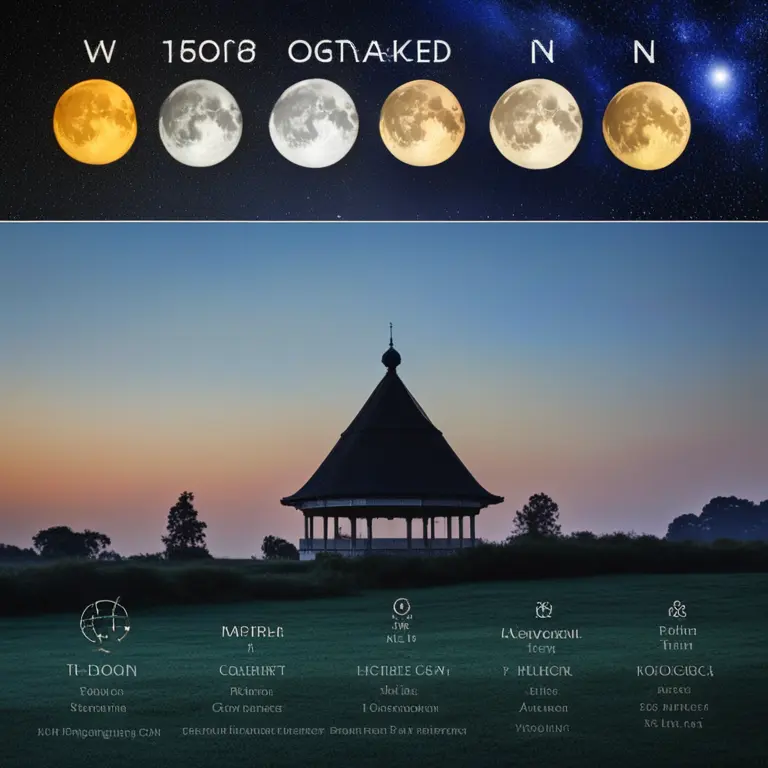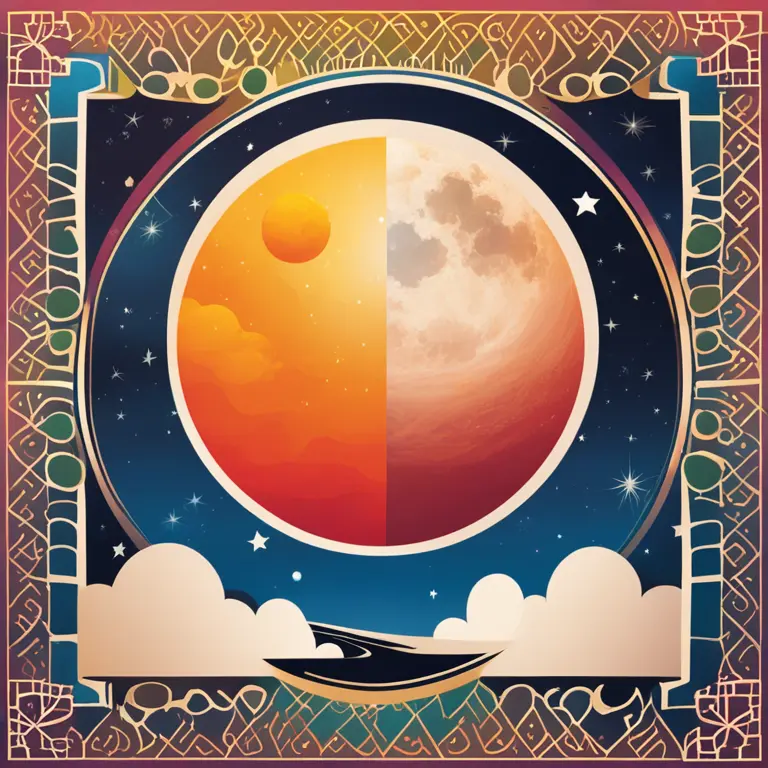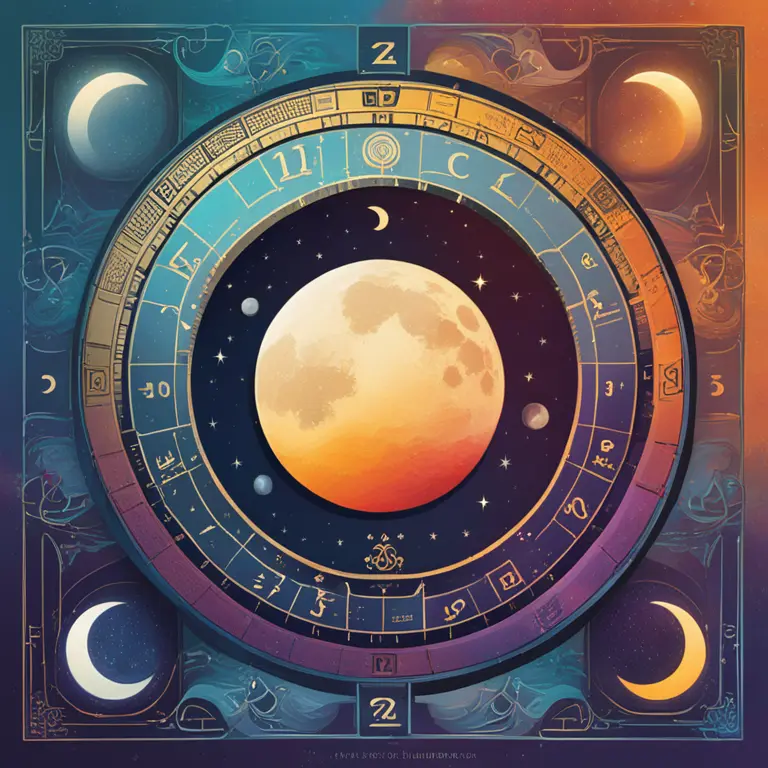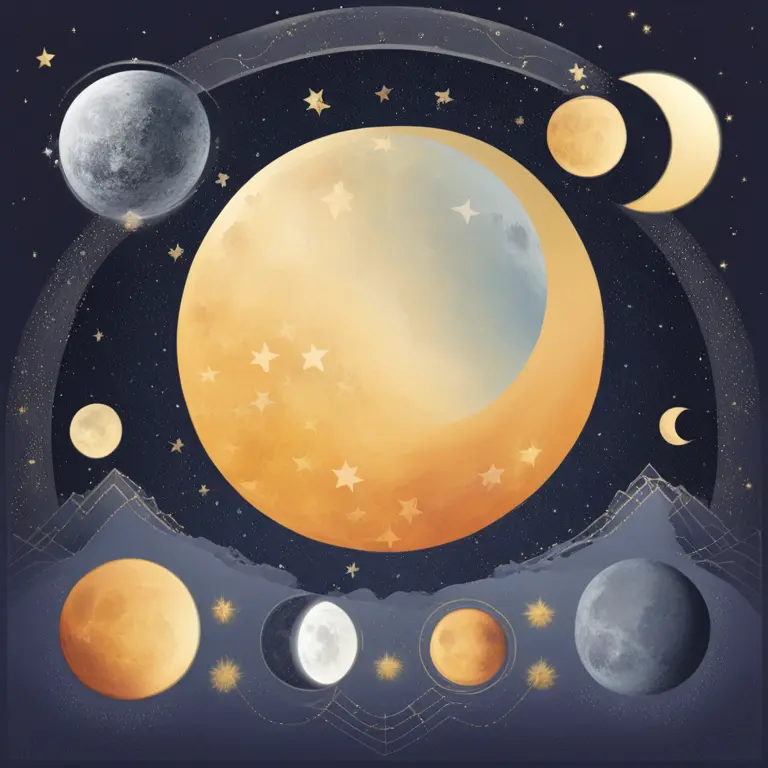
The Lunar Influence: Phases and Positions in Astrology
Examine the impact of the moon's phases and celestial positioning on astrological interpretations and individual horoscopes.
article by Priya Deshmukh
The Significance of the Moon in Astrology
The moon, our closest celestial neighbor, has held a place of significance in the realms of astrology and mysticism for centuries. In astrology, the moon is considered the ruler of our inner selves, emotions, and subconscious. Distinct from the sun that reflects our outward identity, the moon symbolizes our intuitive, internal world. Its phases and location in the zodiac are believed to have profound effects on our daily lives, influencing everything from our moods to our decisions. Understanding the moon's cycle and its placement can provide insight into the ebb and flow of our emotional tides and life rhythms.

Tracking Moon Phases in Astrology
The cycle of the moon is tracked through four primary phases: the New Moon, First Quarter, Full Moon, and Last Quarter. Each phase carries its own astrological significance. The New Moon, for instance, is a time for new beginnings and setting intentions for the future. The Full Moon, on the other hand, often corresponds with a time of culmination and revelation. In 2024 and beyond, astrologers continue to advise individuals to align their activities with these lunar rhythms for optimized emotional and spiritual well-being.

The Moon's Position in the Zodiac
The moon's position within the twelve zodiac signs as it orbits Earth also bears importance. As it transits from Aries to Pisces throughout the month, the moon's location is believed to color the collective emotional climate. For instance, when the moon is in fiery Aries, people might feel more impulsive and energized, whereas a Piscean moon could evoke increased sensitivity and empathy. Personal horoscopes take into account the position of the moon at one's birth to determine their moon sign, which sheds light on emotional responses and intuitions.

Lunar Eclipses and Astrological Interpretations
Lunar eclipses, which can only occur during a Full Moon when the Earth is directly between the sun and moon, hold particular astrological significance. Eclipses are considered potent times for change and transformation. They can symbolize significant life shifts, and in astrology, they are thought to herald important revelations or the end of a particular chapter. The next set of lunar eclipses in 2024 is expected to bring a series of important changes at a personal and global level.

Integrating The Moon in Daily Life
For those looking to integrate lunar astrology into their daily lives, tracking the moon's phase and location can be a practical tool. Activities like starting new projects, gardening, or reflecting on personal growth can be more fruitful when done in harmony with the lunar cycle. Many calendars and astrology platforms provide daily updates on the moon's phase and sign, encouraging individuals to attune to its rhythm and harness the energy of the cosmic dance in their routines.
Impact on Personal and Collective Biorhythms
Beyond astrology, the moon's influence is observed in the concept of biorhythms, biological cycles that regulate various human functions. It's long been posited that the moon's gravitational pull, which affects the tides, might also influence human behavior and physiological cycles. Awareness of the moon's phases can offer another perspective in managing one's personal biorhythms, potentially improving emotional and physical health. As astrology gains renewed interest in the 21st century, the intersection of celestial cycles and human life continues to fascinate.
Published: 1/19/2024
Modified: 1/19/2024
More predictions
Come back here soon to learn more about yourself and your future


Moon Phase Birthday Compatibility Guide
Discover the intriguing link between your birthday's moon phase and romantic compatibility. Harness lunar insights for heart-aligned connections!


The Mystique of Moon Phase Eclipses
Delve into the cosmic spectacle of moon phase eclipses and their significance in astrology.


How Moon Phases Impact on Life's Rhythms
Delve into the intriguing ways moon phases impact our lives, influencing everything from emotions to behaviors with celestial rhythm.